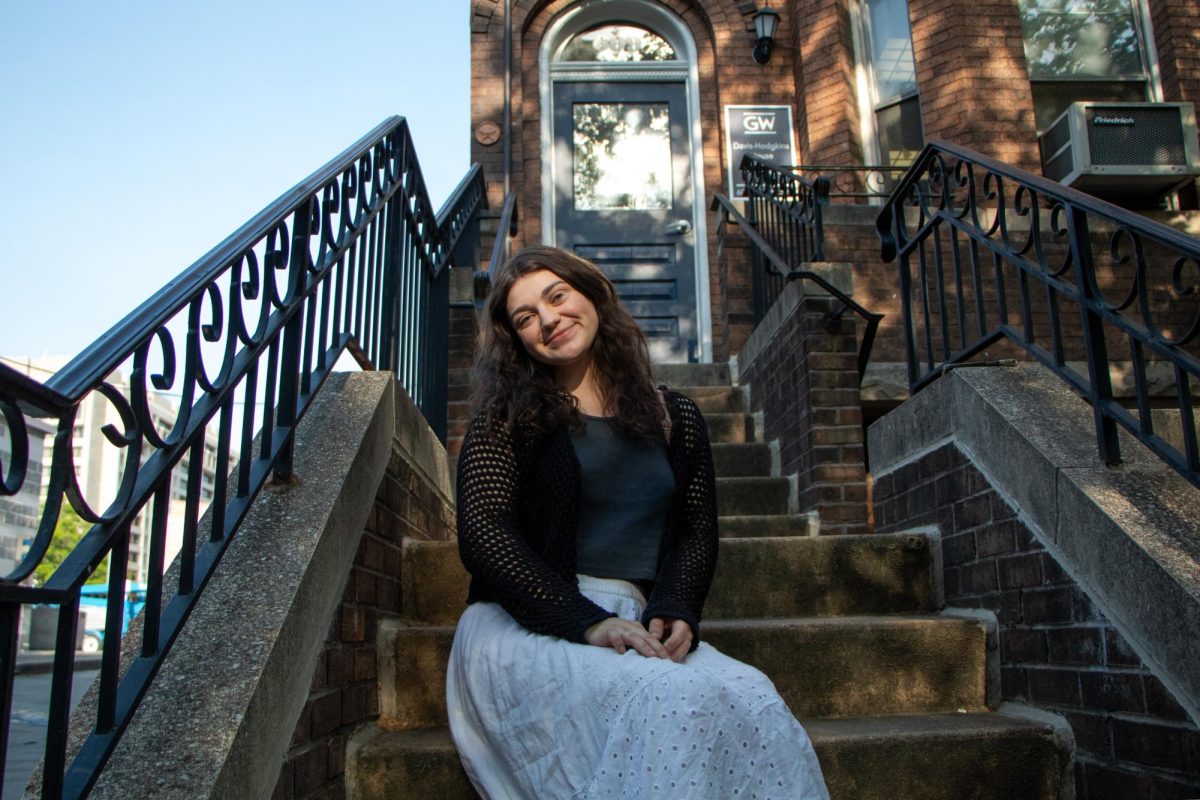As a freshman at GW, I’m still passionate about an activity I did in high school: Model United Nations.
Some may see me as nerdy or less cool than the sports jocks or fraternity brothers. I was also on the debate team for five years, but I quit when I came to campus.
This is common both at GW and elsewhere: Many of my friends here were on debate teams, did Model UN or competed in Mock Trial competitions in high school, but dropped out once they went to college.
Perhaps it was because of the negative stereotypes that surround these “academic sports.” But in many ways I’m unperturbed. Every one has a niche. And more importantly, these organizations can afford their members a wide range of benefits, from discovering a passion for public speaking to boosting resumes and providing a huge return on investment.
If you’ve looked down your nose at these clubs before, maybe it’s time to revisit your opinion of the, quite frankly, incredibly talented people who do them. Don’t look down on these students – revere them.
Knowing GW had a top Model UN program was central to my choice to come here – it offered the opportunities I craved. In fact, I’ve just returned from the world’s oldest and largest Model UN conference, hosted by Harvard University, where seven of the 11 people on the GW team won awards. GW’s Parliamentary Debate team and Mock Trial team also competed in Boston, and Parliamentary Debate had two of the top speakers.
For myself and several of my close friends, the high standards of these groups are a key part of why we chose GW: Parliamentary Debate is ranked No. 4 nationally, Mock Trial is ranked No. 36 and Model UN is No. 14. Unsurprisingly, GW students excel at these activities.
GW students vie to enter fields like politics, law and civil service after graduation. The best gateway into these professions is academic sports clubs: Debate simulates political discussion for aspiring politicians, Mock Trial imitates court cases as practice for budding lawyers and Model UN teaches diplomacy for those interested in the Foreign Service.
In fact, some of the most well-known figures in those fields once competed in academic sports. Richard Nixon and Lyndon B. Johnson debated in college, and UN Secretary General Ban Ki-Moon participated in Model UN. If you actually have an ambition to work in one of those professions or related areas, debate and Model UN provide a great starting point.
The two largest student organizations on campus are the College Republicans and College Democrats, but of the thousands of members – each who traipse up to pay their dues at the beginning of the year – how many actually gain political experience? Many might go canvassing or to the election watch parties, but what leadership skills do those activities give them?
Some members may get more out of their experience than others, and of course it’s still good to join those groups than no organizations at all. But if you want to make the most of your time, there are other student groups to consider.
If you want to be engaged, you need to join a more intimate club that provides opportunities to develop useful skills. GW Debate and GW Model UN both host several competitions and conferences over the year, with other schools coming to compete on our turf.
Don’t be the person who claims he or she is getting something out of being in a large politicized organization when in reality he or she has paid dues and that’s it. You’re wasting your money and kidding yourself in the process. Instead, join a club that forces you to be active.
For those with no interest in public service, the abilities you develop through academic sports – public speaking, communication and analytical thinking – are still transmissible to all careers. Many people are terrified of giving speeches, or have no idea what’s appropriate for public speaking. (If someone says the word “like” more than three times a sentence, for example, there’s clearly a problem with their communication skills.)
In the same way that these activities could have gotten you into GW (Best Delegate – an organization that holds Model UN trainings and provides analysis and coverage of the group – writes that Model UN is highly valued by universities when admitting students), engaging in such groups now could also help you land a job this summer or after graduation. Securing a job often requires networking, and these organizations connect participants to people across the country and the world.
Thanks to Model UN, I now have friends at the University of Chicago, and Harvard and Emory universities, among others. I know people at Sciences Po Lille in France, Radboud University Nijmegen in the Netherlands and Universidad Simón Bolívar in Venezuela. It’s a pretty neat opportunity.
But beyond the feather in the resumes of those who participate, students get very close to their teammates, like any sport. There’s a genuine connection among friends that we make through these groups. We win together, lose together and party together.
When I started debate and Model UN in high school, I was a quiet guy with a lack of direction and didn’t have much I enjoyed doing. More than six years later, I’m passionate about global issues, I’m an accomplished public speaker and I’m rooming with one of my Model UN friends next year. These academic sports changed my life – they can change yours, too.
Teddy Clamp, a freshman majoring in international affairs and history, is a Hatchet opinions writer. Want to respond to this piece? Submit a letter to the editor.




